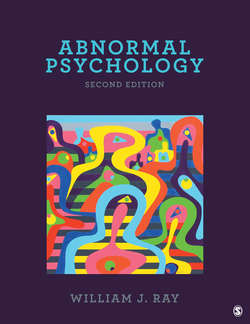Читать книгу Abnormal Psychology - William J. Ray - Страница 50
На сайте Литреса книга снята с продажи.
Historical Considerations in Understanding Psychopathology
ОглавлениеIn this section of the chapter, I will examine our conceptualizations of mental illness over time. I will also show you how, as we developed new scientific techniques for understanding human processes, the conceptualizations of mental illness also changed. We have gone from a worldview in which magic, including the idea that you could be possessed by spirits or demons, produced mental illness to a time in which our scientific understanding describes a complex set of processes on many levels that contribute to mental illness. Today, we have also come to see those with mental illness as whole people with both abilities and deficits. In terms of the future, there is a growing movement to allow people with mental disorders to have a greater say in their treatment. A person’s high functioning and the ability to make decisions are not totally taken away by having a mental disorder. The person is still able to describe his or her experiences and, in the best of conditions, to ask others for help. However, I am getting ahead of myself.
Psychology seeks to describe and understand human behavior and experience. In fact, as humans, we have a long history of trying to understand ourselves. In this section, I will discuss some of the historical conceptions that have influenced psychology (see Finger, 2000, or the classic Boring, 1950, for more information). One of these conceptions is the role of the body and its involvement in our mental processes. Some of the ideas we will examine date back thousands of years yet still influence our views today.
